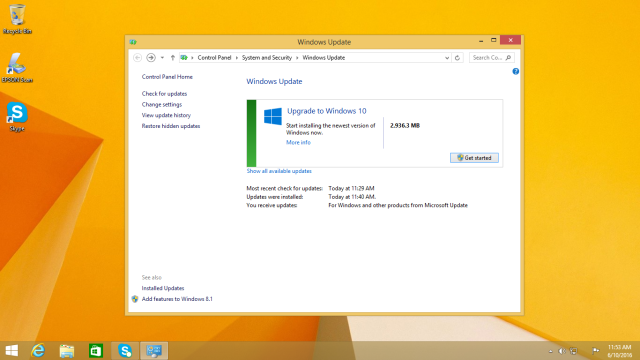
Microsoft has paid a California woman $10,000 over an unwanted Windows 10 upgrade, reports the Seattle Times.
Teri Goldstein's computer, used to run her travel agency business, was apparently upgraded to Windows 10 shortly after Microsoft made the free upgrade available to Windows 7 and 8.1 users last year. Goldstein said this update was so problematic that it left her computer crashing and unusable for days at a time. After Microsoft's tech support was unable to assist, Goldstein sued the software company, asking the court to award her compensation for lost wages and the cost of a new computer.
Goldstein won and was awarded a $10,000 judgement. Microsoft appealed this decision but then dropped this appeal. According to a Microsoft spokesperson, the company still denies any wrongdoing but dropped the appeal to avoid the expense of further litigation.
Microsoft's aggressive push to get Windows 7 and 8.1 users to upgrade to Windows 10 appears to have been reasonably successful, with usage of the new operating system growing faster than any prior version of Windows. But it has come at a price: the company has used malware-like tactics to trick people into accepting the upgrade, and stories of unwanted automatic installations, though hard to verify, are abundant.
The free upgrade is due to end on July 29, one year after Windows 10's initial release. When it goes, so too will accidental and unwanted upgrades. Nonetheless, this payout is hard to interpret as anything other than an invitation for other disgruntled Windows 10 recipients to take legal action against Microsoft. There have been rumblings of a class-action suit against the company for almost as long as the upgrade offer has been available; this court victory could provide the impetus to make that actually happen.
reader comments
183